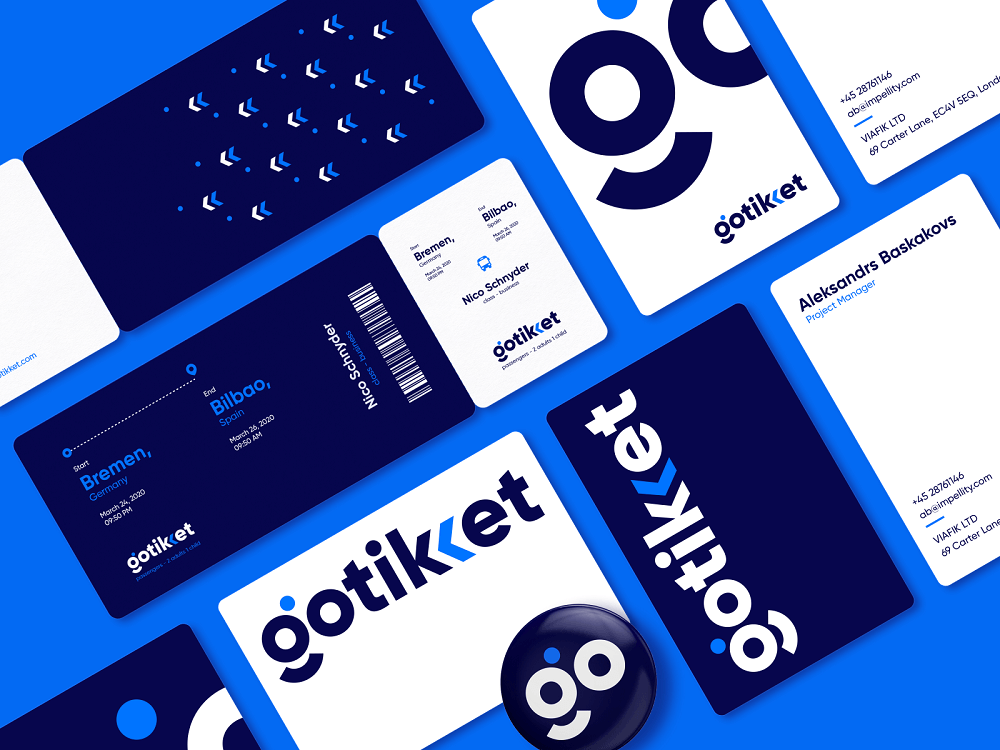Why Every Company Demands Robust Branding for Competitive Advantage
Why Every Company Demands Robust Branding for Competitive Advantage
Blog Article
Why Robust Branding Is Important for Market Leadership
In today's affordable landscape, durable branding becomes a crucial part for achieving market management. A distinct brand name identification not just sets a business besides its rivals but additionally cultivates trust fund and psychological connections with consumers. These aspects are crucial for cultivating commitment and motivating repeat business, yet lots of companies overlook the deeper ramifications of their branding approaches. As we explore the diverse nature of branding, it becomes apparent that the risks are high for those who stop working to recognize its significance in shaping long-term service success. What are the specific methods that can boost a brand name to this prestigious condition?
Comprehending Brand Identification
Continually identifying the value of brand identity is crucial for any kind of organization desiring achieve market management. Brand identification incorporates the visual components, messaging, and overall perception that distinguish a business from its competitors. It works as a foundation for just how customers engage and regard with a brand, playing a crucial duty fit their assumptions and experiences.
A well-defined brand name identity communicates the core worths and mission of a company, developing a psychological link with its target audience. Components such as logo designs, color design, typography, and tone of voice need to line up cohesively to share a consistent message throughout all platforms. This consistency reinforces brand name acknowledgment and fosters consumer loyalty.
Moreover, brand identity is not just surface; it reflects the authenticity and integrity of a company. It needs to be very carefully crafted to reverberate with the intended audience while staying versatile to advancing market trends. Organizations that focus on a solid brand identification can efficiently separate themselves, construct a favorable online reputation, and grow a devoted consumer base. Inevitably, a robust brand identification is essential for browsing competitive landscapes and maintaining lasting success.
Structure Consumer Trust
A strong brand identity prepares for developing client trust fund, a crucial element in attaining market management. Trust is not simply a psychological action; it is a calculated asset that can significantly affect acquiring choices and brand name commitment. Companies that cultivate openness, reliability, and uniformity in their messaging and activities foster a complacency among consumers.
To construct this trust fund, brand names should deliver on their promises. This suggests ensuring that item quality satisfies consumer expectations which service experiences are receptive and positive. In addition, constant interaction strengthens dependability; when customers know what to expect which their problems will certainly be dealt with, their self-confidence in the brand deepens.
Social evidence additionally plays an essential role in developing trust. Positive testimonials, reviews, and endorsements from credible sources improve a brand's track record and can sway prospective customers. Engaging with clients via social platforms and addressing their concerns openly shows accountability and commitment.
Differentiation in Open Markets
In today's congested marketplace, distinction is necessary for brand names seeking to stand out and record consumer attention. With countless alternatives offered, customers are frequently overloaded, making it crucial for brand names to establish a special identification that reverberates with their target audience. This differentiation can reference materialize with different components, including item attributes, rates strategies, client solution, and brand name messaging.
Effective differentiation includes not just determining what makes a brand name one-of-a-kind but additionally connecting these distinctions plainly and constantly. Brands must verbalize their worth recommendation in a way that addresses certain consumer requirements and choices. For circumstances, a business might concentrate on sustainability, cutting-edge modern technology, or customized client experiences to carve out a particular niche in an affordable landscape.
Moreover, brand names ought to continually examine their competitive setting to adapt and fine-tune their distinction approaches. This proactive approach guarantees that they remain attractive and relevant to customers as market dynamics progress. Eventually, robust branding that emphasizes differentiation not just fosters brand name loyalty however additionally places a business as a leader in its sector, leading the method for sustained growth and market prominence.
Psychological Connections With Consumers
Psychological connections function as an effective driver in building lasting relationships between customers and brand names. It cultivates commitment that transcends mere transactional interactions when consumers reverberate with a click to investigate brand name on a psychological degree. Brand names that efficiently stimulate feelings-- whether with narration, shared worths, or authentic interaction-- develop a sense of belonging for their consumers.
These psychological connections can significantly influence buying choices, as consumers are frequently driven by feelings instead of reasoning. A brand that aligns with consumers' addresses or ambitions their pain factors can grow a deep-rooted loyalty that brings about repeat company and favorable word-of-mouth referrals.
Furthermore, psychological branding allows firms to differentiate themselves in congested markets. By using the sentiments of their target market, brand names can take a special identity that resonates deeply, making them remarkable and preferred over competitors.
In an age where consumers are bombarded with selections, a solid emotional link can be the determining consider brand preference. Thus, prioritizing emotional interaction is not just an advertising strategy; it is a critical important for brands looking for to develop purposeful relationships and boost consumer retention.
Long-Term Business Success
Lasting organization development rests on the ability to cultivate robust branding strategies that resonate with consumers gradually. A strong brand not only distinguishes a company from its competitors however also promotes commitment and depend on among consumers. This long-term connection is vital for ensuring repeat company, which significantly adds to profits stability and growth.
In a significantly affordable industry, brand names that communicate a constant and clear message are most likely to prosper. This consistency strengthens brand name identity, making it less complicated for customers to recall and choose the brand over others. Robust Branding. Consequently, a reputable brand can adapt to market changes without shedding its core significance, enabling for advancement without pushing away faithful consumers
Furthermore, durable branding develops a system for customer engagement, wherein services can gather feedback and adapt their offerings as necessary. This repetitive procedure not just improves client complete satisfaction but likewise constructs a neighborhood around the brand name, cultivating additional hints a feeling of belonging.
Conclusion

Organizations that focus on a strong brand identity can successfully differentiate themselves, construct a positive reputation, and cultivate a loyal consumer base.A strong brand name identity lays the foundation for constructing customer trust, a crucial element in achieving market management. A solid brand not only separates a firm from its competitors yet additionally fosters loyalty and trust among clients. As a result, a reputable brand can adjust to market modifications without shedding its core essence, permitting for innovation without estranging faithful consumers.

Report this page